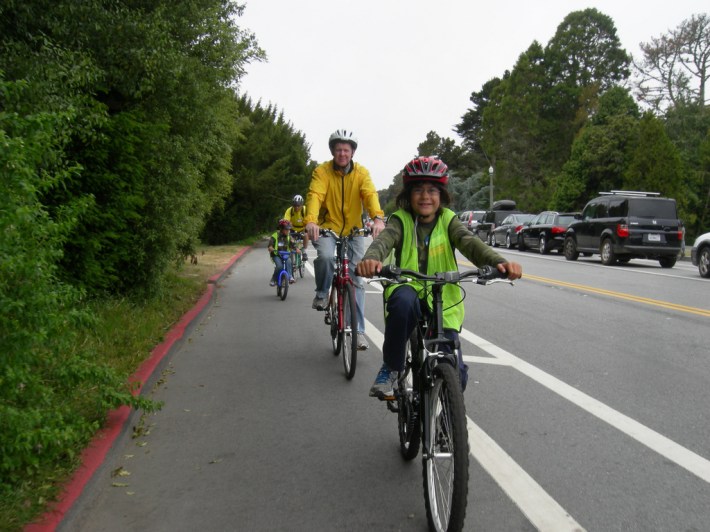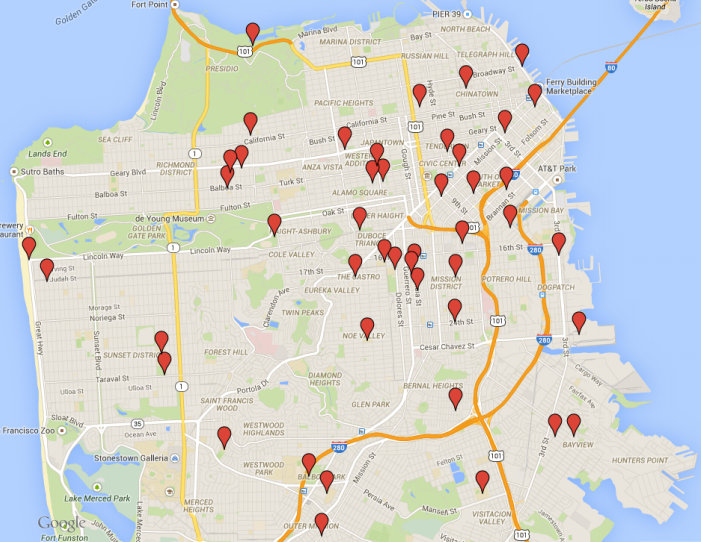
Several supervisors say they'd like to see city-funded bike education classes distibuted more equally among their districts, and to attract more participants to reduce the per-person cost of the program.
At a recent committee meeting of the SF County Transportation Authority Board, which is comprised of supervisors, members raised their concerns when they approved a nine-month extension of their contract with the SF Bicycle Coalition and the YMCA YBike program, which taught bicycling skills to over 1,800 kids and adults last year.
Supervisors Mark Farrell and Norman Yee said their districts appear "underserved" among the several dozen class locations. "We have a ton of bicyclists in District 2," said Farrell, including kids and tourists on rental bikes. "We have bicycle shops all over the place, we have people cycling down the waterfront, through the Preisidio... It's really challenging to look at this and say this is a great thing when I look at two locations in the district."
Matt Lasky of the SFMTA said the locations are chosen based on neighborhood density, but that they will look into re-distribution.
SFBC Program Manager Eric Tuvel said some locations host different types of classes at different frequencies than others. Most sites host classes for people who want to improve their urban bicycling skills, while only one site hosts "learn to ride" classes for adults. Children are also taught to ride through programs at schools and during Sunday Streets events.
Tuvel said classes are also located along popular bike routes that draw people from outside the neighborhood, often on their way home. As to the questions about ethnic and gender equity, Tuvel said that at many of the classes, most attendees are women, many of them Asian-American.
"People are coming from all over the city," said Tuvel. "We're capturing a lot of different communities."
Board of Supervisors President London Breed claimed the program costs $200 per participant, and said she wants the SFMTA and SFBC to increase attendance to reduce the per-person cost. "I want them to be effective, but I want them to also be cost-effective, because this an expensive program to implement." Tuvel noted that the SFBC does distribute pamphlets in English, Chinese, and Spanish languages.
But Breed's $200 figure is incorrect, though no one mentioned it at the hearing. The bike education program contract cost $377,000 for three years and nine months, but Breed appeared to divide that number by the count of 1,800 participants last year to reach her figure of $200 per person.
According to an SFCTA document [PDF], "The SFMTA expects that, over the course of an amended 45-month contract term, approximately 5,655 participants will attend these classes." That puts the actual cost at $66 per person.
Supervisor Katy Tang also said she'd like to see more follow-up surveys to demonstrate how much participants continue to ride after the classes.
“It’s been super liberating to learn how to ride a bike," said resident Christopher Abreu, who attended the SFBC's "Adult Learn to Ride" class and the follow-up traffic skills classes, according to a committee report [PDF]. "Not only is it great to accomplish something you didn’t think you could, it makes me think about what other activities I could take up that I never thought possible before. Working my way up to biking on busier roads, is something I didn’t think I would ever do."






